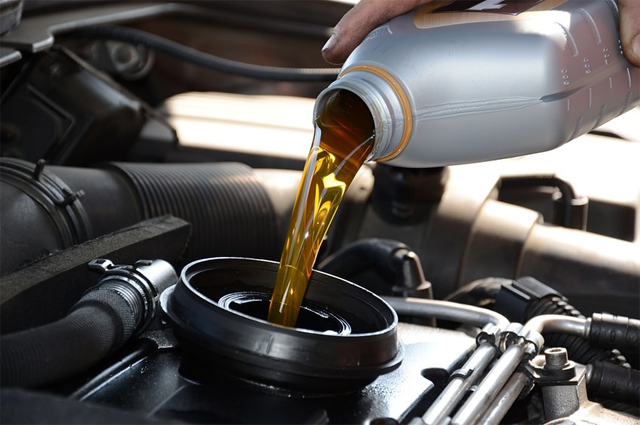Introduction
Maintaining your car's engine is crucial for its optimal performance and longevity, and one of the most critical aspects of engine maintenance is choosing the right engine oil. Engine oil acts as the lifeblood of your car's engine, ensuring smooth operation, lubrication, and protection against wear and tear. With various types and grades of engine oils available, selecting the right one might seem overwhelming. In this comprehensive guide, we'll break down the key factors to consider when choosing engine oil for your car.
- Understanding Engine Oil Basics
Engine oil plays a vital role in ensuring your car's engine functions correctly. It lubricates moving parts, reduces friction, cools the engine, and helps to keep it clean. Engine oils are formulated from a base oil and additives that enhance their performance properties. These additives help with viscosity, temperature stability, oxidation resistance, and more.
- Viscosity and Grades
Viscosity refers to an oil's resistance to flow. It's often represented by numbers like 5W-30 or 10W-40. The "W" stands for winter, and the number preceding it indicates the oil's viscosity at low temperatures. The second number represents the oil's viscosity at operating temperatures. Lower first numbers are better suited for colder climates, while higher second numbers are suitable for hotter climates and heavy loads. Consult your car's owner's manual to find the recommended viscosity grade.
- Manufacturer Recommendations
Your car's manufacturer provides specific recommendations for engine oil types and grades. These recommendations are based on extensive testing and are tailored to your vehicle's engine design and performance. Following these recommendations ensures that your engine receives the right kind of oil for optimal performance and longevity.
- Synthetic vs. Conventional Oils
Synthetic oils are engineered in a lab and offer several advantages over conventional mineral oils. They provide better performance in extreme temperatures, offer superior lubrication, reduce engine wear, and have a longer lifespan. However, synthetic oils are more expensive than conventional oils. Depending on your car's requirements and your driving habits, synthetic oil might be a worthwhile investment.
- High-Mileage Oils
If your car has a significant number of miles on the odometer, you might want to consider using high-mileage oils. These oils contain additives that help rejuvenate seals, prevent leaks, and minimize oil consumption in older engines. They're formulated to address some of the common issues associated with aging engines.
- Oil Change Intervals
Regular oil changes are essential for maintaining your car's engine health. While modern engines and synthetic oils can often go longer between changes, it's still crucial to follow the manufacturer's recommended oil change intervals. Changing the oil at the right time helps prevent sludge buildup, maintains proper lubrication, and extends the engine's life.
- Consider Your Driving Conditions
Your driving habits and conditions can also influence your choice of engine oil. If you frequently drive in stop-and-go traffic or engage in heavy towing, your engine might benefit from an oil with higher viscosity and better heat resistance. On the other hand, if you mostly drive in moderate conditions, a standard oil might suffice.
- API and ILSAC Standards
The American Petroleum Institute (API) and the International Lubricant Standardization and Approval Committee (ILSAC) set standards for engine oils. These standards ensure that oils meet certain quality and performance criteria. Look for oils that carry the API and ILSAC certifications, as they are formulated to meet the requirements of modern engines.
- Avoid Overfilling and Mixing Oils
Overfilling your engine with oil can lead to various issues, including reduced performance, increased oil consumption, and potential engine damage. Always follow the manufacturer's recommendations for oil capacity. Additionally, avoid mixing different types or brands of oils, as this can compromise their performance and negate any benefits of using high-quality oil.
- CarPart: Your Ultimate Auto Parts Solution
When it comes to maintaining your car, including changing the engine oil, having access to reliable auto parts professionals is essential. This is where CarPart comes in. CarPart (carpart.com.au) is your one-stop shop for buying, selling, or connecting with auto parts professionals. Our mission is to disrupt the industry by raising the level of suppliers through education and support, all accessible with just a few clicks of your keyboard. Experience a seamless and efficient way to find the right auto parts and experts for your car-related needs.
Conclusion
Choosing the right engine oil for your car is a critical decision that can impact your vehicle's performance and longevity. Factors such as viscosity, manufacturer recommendations, and your driving conditions should guide your choice. Regular maintenance, including timely oil changes, is essential to keep your engine running smoothly. With resources like CarPart, finding the right auto parts and experts has never been easier. Make informed choices, follow manufacturer guidelines, and enjoy the benefits of a well-maintained engine that powers you on your journeys for years to come.

